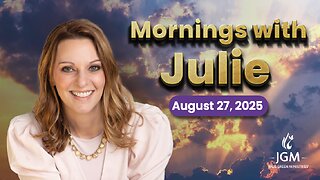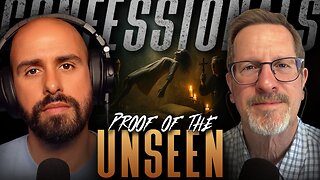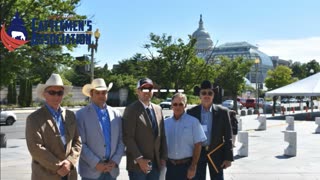Premium Only Content
![J Edgar Hoover: The Freemason That Weaponized The FBI [9 Minute Recap]](https://1a-1791.com/video/s8/6/e/3/h/M/e3hMq.qR4e.jpg)
J Edgar Hoover: The Freemason That Weaponized The FBI [9 Minute Recap]
J Edgar Hoover: The Freemason That Weaponized The FBI
Chapter 1 introduces John Edgar Hoover, born in 1895, highlighting his upbringing, academic prowess, and early interest in law enforcement.
Chapter 2 details Hoover's rise in public service, starting at the Library of Congress and eventually becoming the director of the Bureau of Investigation (BOI), later known as the FBI.
Chapter 3 delves into controversies surrounding Hoover, focusing on his authoritarian leadership, rumors about his personal life, and abuses of power, including investigations into espionage during World War II and the Cold War era.
Chapter 4 outlines major cases and achievements under Hoover's leadership, such as capturing outlaws, advancements in forensic science, and the FBI's focus on countering communism.
Chapter 5 explores Hoover's affiliation with Freemasonry, emphasizing its influence on his values and leadership style, while also discussing the ongoing debates about his legacy due to both his professional contributions and controversial methods.
Chapter 6 discusses Hoover's later career, controversies surrounding his tenure, including his role in investigating President Kennedy's assassination, and his death in 1972, leaving behind a mixed legacy of accomplishments and concerns over abuses of power and privacy.
In conclusion, Hoover's life remains a multifaceted story of achievements, controversies, and the complex balance between law enforcement successes and ethical concerns regarding unchecked power and privacy erosion. His legacy continues to captivate historians, law enforcement professionals, and the public, sparking ongoing scrutiny and fascination.
#freemason #freemasonry #freemasons #masonic #jedgarhoover #fbi #conspiracy
⚠️ Disclaimer: The views expressed in this video do not necessarily reflect the opinions of the Old Fashion Masonic Podcast, any Grand Lodge or Shrine Center, and we encourage viewers to conduct their research and form their conclusions based on reliable sources and personal beliefs.
-
 1:21:19
1:21:19
JULIE GREEN MINISTRIES
2 hours agoLIVE WITH JULIE
31.7K139 -
 LIVE
LIVE
GritsGG
1 hour agoWin Streaking! Most Wins 3485+ 🧠
20 watching -
 1:02:09
1:02:09
The Confessionals
21 hours agoThe Supernatural Proof You Can’t Ignore (When Angels and Demons Showed Up) | Lee Strobel
30.5K23 -
 15:24
15:24
Degenerate Jay
22 hours ago $0.76 earned5 Best Moments In Batman: Arkham Asylum
14K -
 12:24
12:24
The Shannon Joy Show
15 hours ago🔥From Flock Cameras to Palantir: America’s Expanding Digital Cage🔥
11.8K2 -
 2:03:45
2:03:45
BEK TV
1 day agoTrent Loos in the Morning - 8/27/2025
12.2K -
 LIVE
LIVE
The Bubba Army
23 hours agoTaylor Swift & Travis Kelce ENGAGED! - Bubba the Love Sponge® Show | 8/27/25
1,255 watching -
 40:14
40:14
Uncommon Sense In Current Times
18 hours ago $2.57 earnedThe Dating Crisis in America | J.P. De Gance on the Church’s Role in Restoring Family & Faith
47.1K6 -
 12:35
12:35
Red Pill MMA
20 hours agoNow We Know The Truth.. Hero Who Stopped Raja Jackson Speaks Out
18.1K8 -
 8:03
8:03
MattMorseTV
19 hours ago $9.35 earnedThings in the UK just got INSANE...
101K144